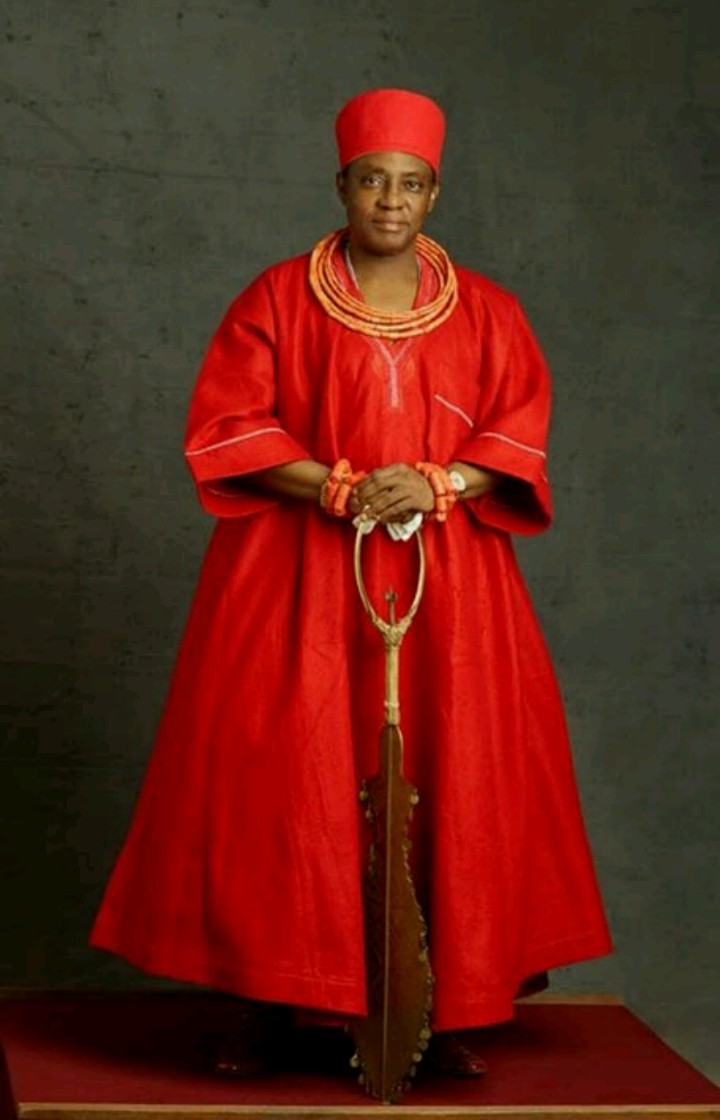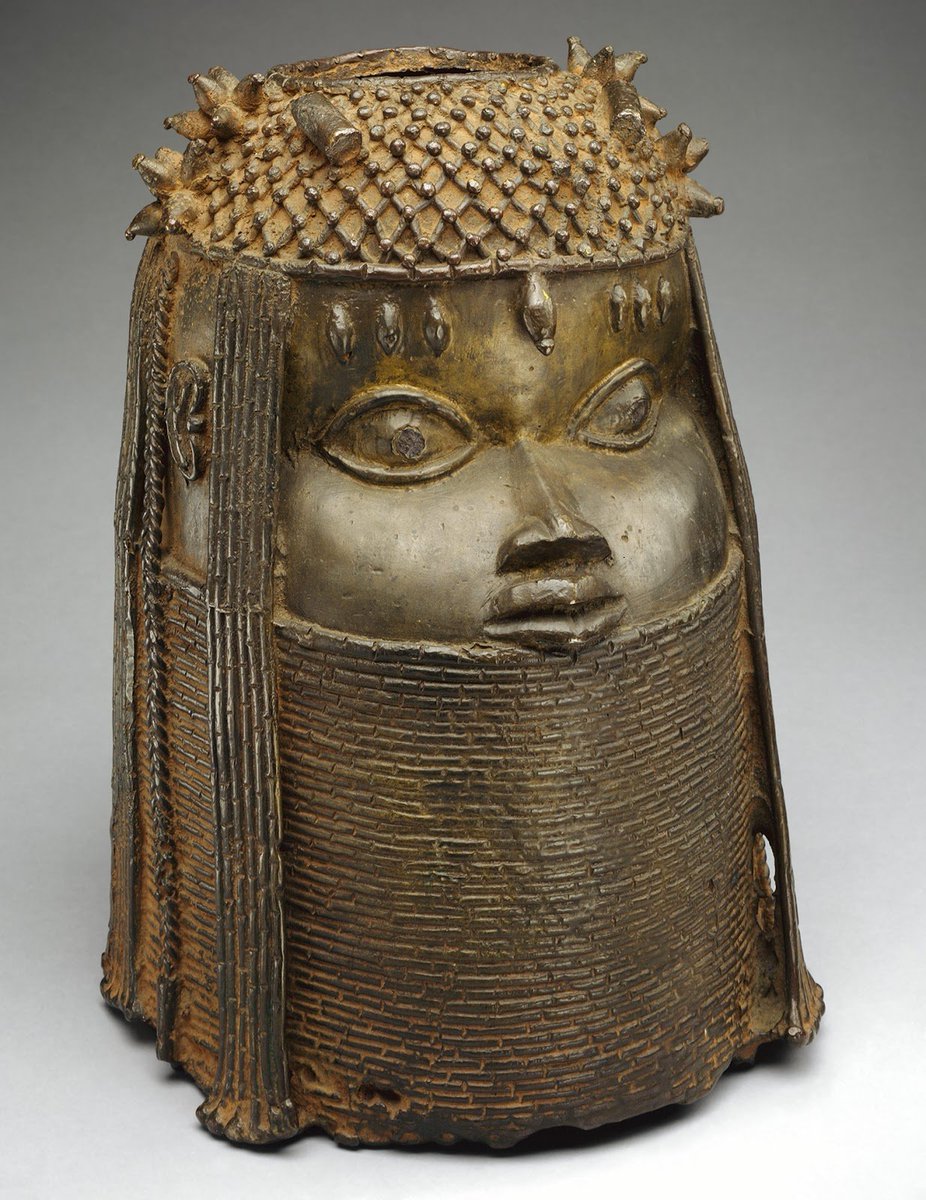
HISTORY OF IKWERRE PEOPLE
The majority of the Ikwerre settlements have their roots traceable from the old Benin Empire.” Iwhnurọhna people descended from the ancient Bini Kingdom.
The name of the grand ancestor is Akalaka.
#Ikwerre #Benin
The majority of the Ikwerre settlements have their roots traceable from the old Benin Empire.” Iwhnurọhna people descended from the ancient Bini Kingdom.
The name of the grand ancestor is Akalaka.
#Ikwerre #Benin
https://twitter.com/Austin_Rioba/status/1391766652702822400
Their relations in Rivers State are Ekpeye and Ogba people.
The reigning Oba of Benin when Akalaka, the ancestor of Ihruọha (later called Iwhnurọhna) fled was Oba Ewuare (Ogwaro).
Akalaka, a member of the Benin royal family, fled in the 13th century on allegation of plotting
The reigning Oba of Benin when Akalaka, the ancestor of Ihruọha (later called Iwhnurọhna) fled was Oba Ewuare (Ogwaro).
Akalaka, a member of the Benin royal family, fled in the 13th century on allegation of plotting
assassination of the Oba.
He died in 1462.
Iwhnurọhna his third son settled east of the Sombrero River by 1538 AD, as detailed below.
Chief N.M.T. Solomon (2004), a native of Ikodu Ubie in Ekpeyeland, in his narrative draws heavily from the now authenticated written historical
He died in 1462.
Iwhnurọhna his third son settled east of the Sombrero River by 1538 AD, as detailed below.
Chief N.M.T. Solomon (2004), a native of Ikodu Ubie in Ekpeyeland, in his narrative draws heavily from the now authenticated written historical
records delivered by various informed sources including “Eketu (Weber) of Ubeta, assumed to have lived for over two hundred (200) years as the oldest man in all Ekpeye, Ogba and Iwhnurọ hna (or Ikwerre), at that time (and) was asked to narrate the history and customs of Ekpeye
people” as unfolded in his lifetime. Here is what he said, which has been validated by the accounts of the current generation through responses to our questionnaires and direct interviews thereby increasing our level of confidence on the data: Ekpeye, born in Benin, was the first
of the three sons of Akalaka. While in Ndoni, he married a second wife to gain the love and favour of the people.
The new wife gave birth to a son, which he named Ogba. Akalaka was still in Ndoni when his first wife, the mother of Ekpeye, gave birth to his third son called
The new wife gave birth to a son, which he named Ogba. Akalaka was still in Ndoni when his first wife, the mother of Ekpeye, gave birth to his third son called
Ihruoha (Ikwerre). Similar historical fact by J.N. Olise (1971) averred that: “Akalaka, a member of the Benin royal family, fled with his wife from Benin to Ndoni, a community located close to the River Niger, to save the life of his new born baby (Ekpeye) …
While at Ndoni, Akalaka took a second wife. … Akalaka had two sons, Ekpeye – born to him by his Benin wife, and Ogba – born to him by his Ndoni wife. According to F.E. Otuwarikpo (1994): ” After the death of Akalaka in 1462 AD, his two sons, Ekpeye and Ogba had conflict, which
compelled Ogba, the younger son, to move northwards where he founded Ohiakwo (Obigwe) and settled with his family. Ekpeye who remained at Ula-Ubie had seven sons – Ubie, Akoh, Upata, Igbuduya, Ekpe, Awala and Asa.
The last three sons – Ekpe, Awala and Asa crossed to the other
The last three sons – Ekpe, Awala and Asa crossed to the other
side of Sombreiro River (present day Ikwerreland and settled there since 1538 AD.” He added that: “Ekpe migrated to present day Rumuekpe and spread through Elele (Alimini), Ndele, Rumuji and part of Ibaa. Awala migrated to present day Isiokpo …” Amadi-Nna (1993) also said
Akalaka migrated with his half brother called Ochichi from the area of Benin Empire.
Ochichi sons were Ele (Omerele, now Elele), Elu (Elumuoha, now Omerelu), Egbe (Egbeda) and Mini (Alimini, Isiokpo). The crucial point here, which is of great importance in tracing the joint
Ochichi sons were Ele (Omerele, now Elele), Elu (Elumuoha, now Omerelu), Egbe (Egbeda) and Mini (Alimini, Isiokpo). The crucial point here, which is of great importance in tracing the joint
origin of the ancestors of the Old Ahoada Division (in the Governor Diete-Spiff administration), is the mention of the number of children that Akalaka had, namely: Ekpeye, Ogba and Ihru ọ ha (Ikwerre). It is noteworthy that the pedigree and name of Ikwerre people, Iwhnurọhna,
obviously took its root from this original name – Ihruọha. Chief Solomon therefore establishes a very vital historical link, which has been missing in literature on Ikwerre origin that would assume more significance in the discourses of Ikwerre genealogy in the future
the fact that Akalaka was the direct father of Ihru ọha (Ikwerre). Iwhnurọhna, in Ikwere parlance, means the face of the community (town, city or village). Nigerian colonial history records that the name “Ikwerre” was given by the colonial administration when they wanted to
acquire the Rebisi waterfront to build the wharf. Using an Ibo interpreter to talk to the illiterate Rebisi (Port Harcourt) chiefs, they asked them: Would you permit us to use the waterfront to build the wharf for ships to berth?
And they answered: A KWERULEM , meaning – “We have agreed.”
What the white-man was hearing was “Ikwerre,” so he recorded it in the official gazette that the IKWERRE PEOPLE have agreed for the colonial administration to build the wharf. And since it was the official record
What the white-man was hearing was “Ikwerre,” so he recorded it in the official gazette that the IKWERRE PEOPLE have agreed for the colonial administration to build the wharf. And since it was the official record
of government, the name Ikwerre became the name of the Iwhnurohna people in all official documentations till date.
Similar cases of Anglicization of native names in the NigerDelta region by the colonial administration are Benin for Benin, Okrika for Wakrike, Degema for
Similar cases of Anglicization of native names in the NigerDelta region by the colonial administration are Benin for Benin, Okrika for Wakrike, Degema for
Udekema, Abonnema for Obonoma, Brass for Gbara sni, Bonny for Ibani, Pepple for Perekule, Ahoada for Ehuda, etc Even so, “… there were dissenting voices, … who believed that Ikwerre origins lay outside Igbo land, … in the Benin Kingdom of old.
It is, therefore, obvious that the interminable debate about Ikwerre origins and migrations including the repudiation of the Igbo tradition is not a phenomenon of the post-civil war period. The controversy, as it were, is not necessarily the product of the present political
realities wherein groups which hitherto were seen to have cultural affinities now find themselves in different states or administrative systems.” — K.O. Amadi (1993)
The Ogbakor Ikwerre Convention, a cultural organization of Ikwerre people, in a paper presented
The Ogbakor Ikwerre Convention, a cultural organization of Ikwerre people, in a paper presented
to the Human Right Violation Commission headed by Rtd. Justice Chukwudifu
Oputa on 10 October 2001, said: “Ikwerre ethnic nationality is not and has never been a sub-group of any other tribe in Nigeria including Ndi-Igbo.
Oputa on 10 October 2001, said: “Ikwerre ethnic nationality is not and has never been a sub-group of any other tribe in Nigeria including Ndi-Igbo.
There is no doubt that the advent of the British and later regionalization put Ndi-Igbo at the helm of affairs in Eastern Nigeria. This brought Ndi-Igbo into Ikwerre land. In course of time, the Igbo took advantage of their position in the then Eastern Regional Government to
grab land in Ikwerre and occupy political positions such as the mayor of Port Harcourt. In the process, Ikwerre along with other minority groups were marginalized and driven to the
background.” Professor Godwin Tasie noted that in 1913 the Rt Rev Herbert Tugwell,
background.” Professor Godwin Tasie noted that in 1913 the Rt Rev Herbert Tugwell,
the Anglican Bishop on the Niger, undertook an experimentation tour of Ikwerre towns and villages assumed to be Ibo-speaking to test the Union Ibo Bible Nso being introduced in Iboland. “Tugwell discovered from the tests he carried out that although the Ikwerre were often
regarded as Ibo… the Union Ibo Bible translation, surprisingly, was not easily understood by the Ikwere.” This is obviously why Igbo vernacular was compulsorily introduced and taught in all schools in Ikwerre land before the Nigerian Civil War to the assimilation
(i.e. destruction) of the Ikwere language.
This also obviously led to the Rumuomasi Declaration in 1965. ” … in their meeting at Rumuomasi in 1965 the Ikwerre had, under the umbrella of a highly promising new body that was to get the Ikwerre together as a people of new and
This also obviously led to the Rumuomasi Declaration in 1965. ” … in their meeting at Rumuomasi in 1965 the Ikwerre had, under the umbrella of a highly promising new body that was to get the Ikwerre together as a people of new and
clearer vision, they had declared themselves as a people of the distinct identity of Ikwerre Ethnic Nationality – not Ibo, not Ijo, not anything else but Ikwerre, Iwhnurọhna.
This was the historic Rumuomasi Declaration of 1965 (G.O.M. Tasie, 2000).
This was the historic Rumuomasi Declaration of 1965 (G.O.M. Tasie, 2000).
The full implication is that Ikwere people began to assert themselves forcefully as an ethnic nationality of their own and not Ibos or Ijos, and efforts were made to revert to the original Ikwere names for families, villages, communities and landmarks.
For instance, there was the change from Umuola to Rumuola, Umuoro to Rumuoro , Umukrushi to Rumuokwurusi , just to name a few.
KNOW YOUR HISTORY
Oba ghato kpere iseeeeeeeee
KNOW YOUR HISTORY
Oba ghato kpere iseeeeeeeee
@Manlike_ED your #Ikwerre thread is above
• • •
Missing some Tweet in this thread? You can try to
force a refresh







